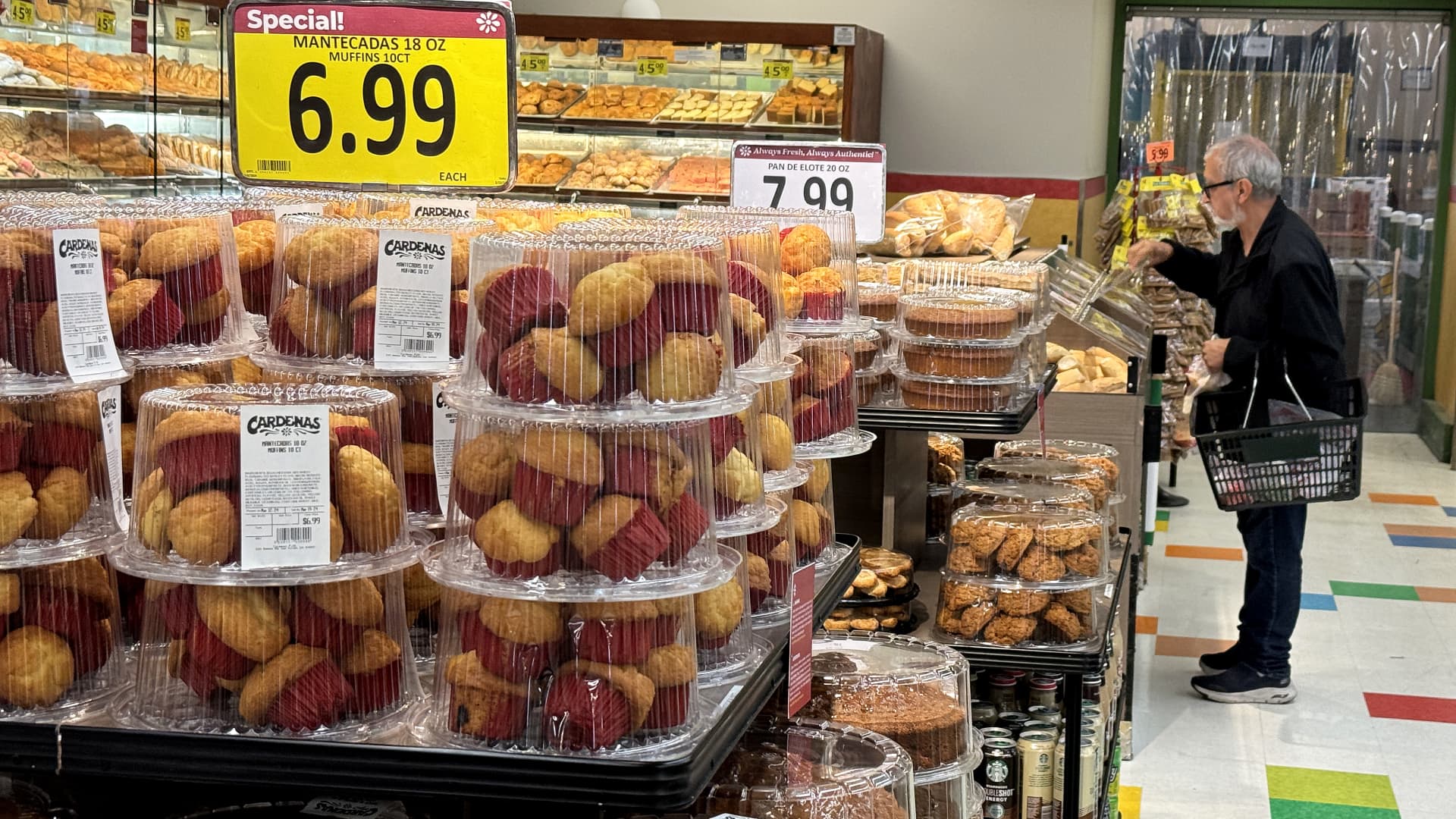Gee I wonder why spending outpaced income…
Someone tell the Fed things are tough on us too.
Within that picture came several salient points: An abundance of money still sloshing through the financial system is giving consumers lasting buying power. In fact, shoppers are spending more than they’re taking in, a situation neither sustainable nor disinflationary. Finally, consumers are dipping into savings to fund those purchases, creating a precarious scenario, if not now then down the road.
Put it all together, and it adds up to a Fed likely to be cautious and not in the mood anytime soon to start cutting interest rates.
“Just spending a lot of money is creating demand, it’s creating stimulus. With unemployment under 4%, it shouldn’t be that surprising that prices aren’t” going down, said Joseph LaVorgna, chief economist at SMBC Nikko Securities. “Spending numbers aren’t going down anytime soon. So you might have a sticky inflation scenario.”
Indeed, data the Bureau of Economic Analysis released Friday indicated that spending outpaced income in March, as it has in three of the past four months, while the personal savings rate plunged to 3.2%, its lowest level since October 2022.
Okay, so I’m a macroeconomics illiterate, I read this whole article and didn’t really grasp everything. But I have a few questions for anyone who knows better:
They say that excessive spending is causing inflation, and that people are spending savings, credit debt is really high, and that is keeping prices high. So, two questions.
One, when they say we have “lasting buying power,”…I’ve always understood buying power to mean your money goes further. That’s…not the situation though. It’s the opposite. What does buying power mean in this context?
And two, are they measuring spending strictly by amount of money spent? Or is it a percentage of income? Because…I mean, we’re all spending way more money but getting way less. Because inflation. So, are they saying because everything is so expensive, that things will stay expensive because people keep spending more and more? Because shit fuckin costs more and more? Or are they saying that people are spending excess money, on non-essential goods, creating a bubble where there is more money being spent than they’d expect and thus the prices are staying high because businesses think it’s a good time to cash in on the spending spree?
Don’t assume the article has to make sense. Notice how all the blame is put on Biden’s administration or consumers. Why no mention of corporate price gouging? No mention of record profits?
It’s just another fluff piece trying to draw attention away from, perhaps, the real problem.
They’re talking like people still have more money left from covid times. Employed but not commuting, unemployed but getting a livable check, no student loan payments, etc meant a lot of people saved a lot(relatively speaking) when they usually wouldn’t have been able to. So they still have enough where they’re able to be spending on “luxury”.
There is a mix both of the people above and the people who for one reason or another aren’t flush with cash but everyone has to spend on necessities which have increased in price. As long as there’s no price regulation and what are effective monopolies in many necessities the situation won’t improve. The fed control of interest rates isn’t likely to save us from this situation imo.


